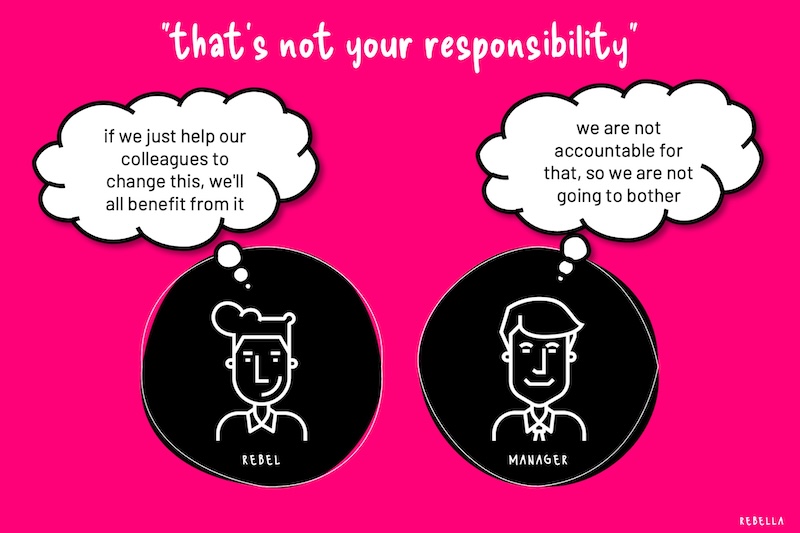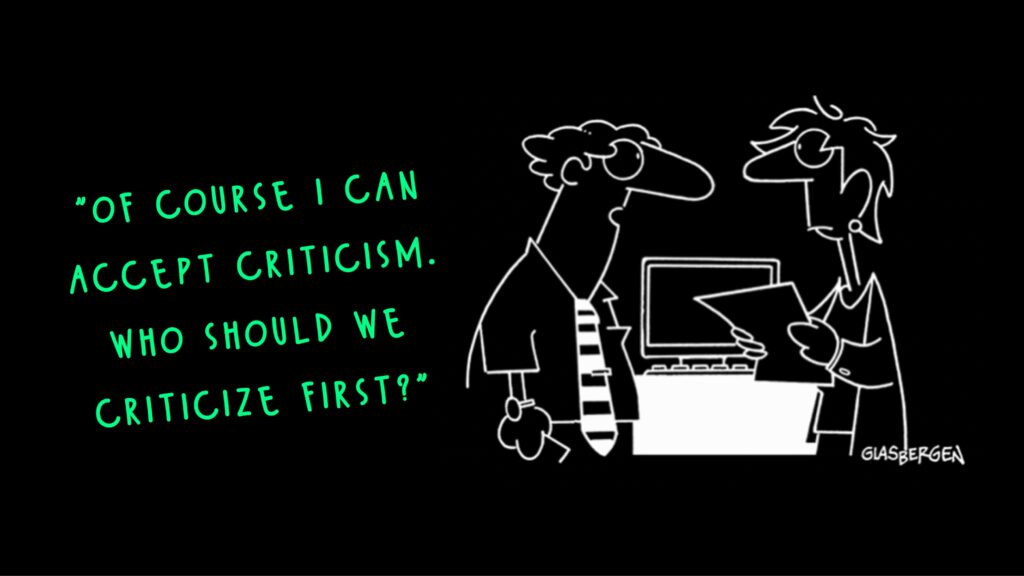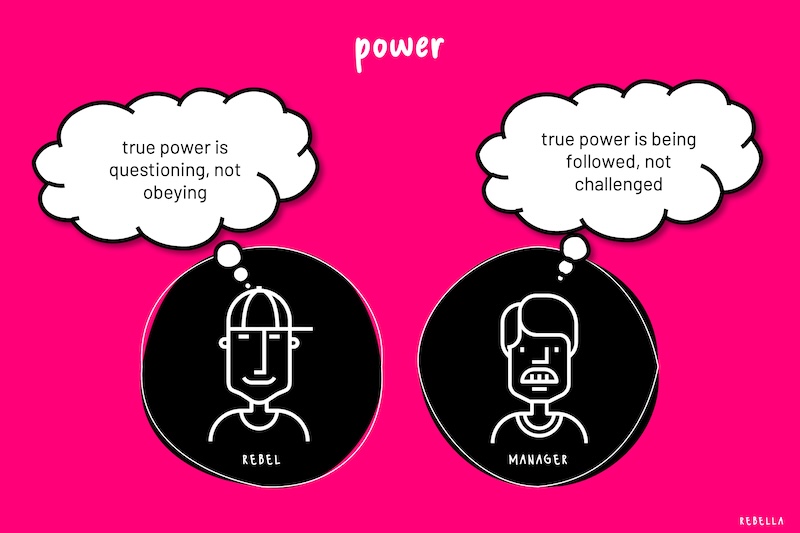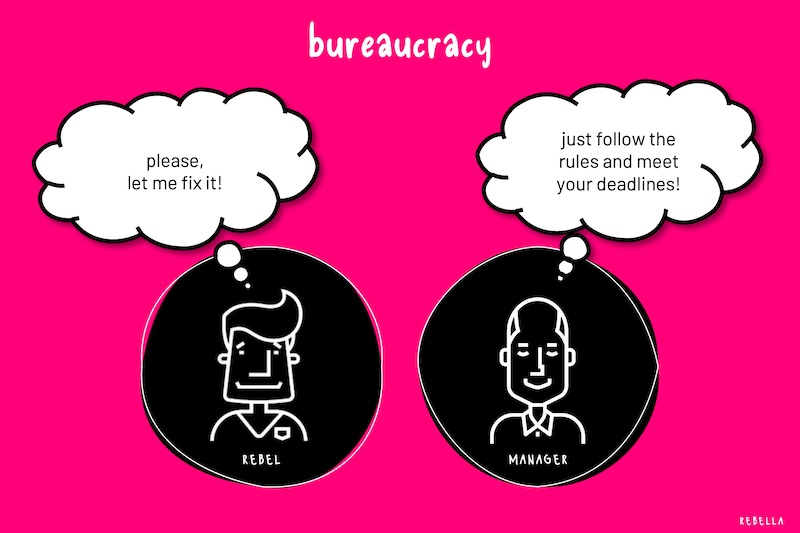
Dr Rebel: Rebels treat responsibility as something fluid, while managers see it as fixed
Today’s question: How come rebels and managers so often clash about the scope of work?
Rebels often push beyond their job boundaries because they see better ways to do things and can’t resist jumping in. They fix things before the manager even knows it is a problem, or they start making strategic decisions, while the manager is stuck fixing the coffee machine because ‘someone has to’. By the time the manager approves one new idea, the rebel has already built five prototypes and come up with ten more fresh ideas.
While that drive can spark great ideas, it can also blur lines, create confusion, or clash with plans already in motion. For a manager, that means extra coordination and sometimes feeling like control is slipping away.
Five reasons to fight
Here’s why friction can arise between a rebel and a manager around responsibilities:
- Rebels often step outside their job description to “fix” or “improve” things, which can feel like they’re undermining the manager’s role or the chain of command.
- Managers typically have to focus on what’s urgent and realistic. Rebels often focus on what could be better, even if it’s not on the priority list.
- When rebels bypass established procedures, managers may see it as disrespect or chaos — even if the intention is innovation.
- If a rebel tinkers with something outside their scope and it goes wrong, the manager is still the one who has to answer for it. That can create tension fast.
- Managers often guard stability and predictability. Rebels thrive on shaking things up. Those are two opposite energies trying to share the same sandbox.
Okay, so now what?
This kind of rebel–manager friction isn’t necessarily a bad thing. In fact, when handled well, it can create a powerful balance between innovation and execution. Here are three practical tips to prevent or improve this kind of tension:
Tip 1. Create safe zones for innovation
A good way to keep things smooth is to give clear spaces where experimenting is welcome, like pilot projects or process tweaks. Regular idea sessions let rebels pitch their improvements, and making it clear who decides in the end keeps everything balanced. This gives the rebel space to explore ideas without stepping on toes, and provides the manager with visibility and control.
Tip 2. Clarify responsibilities and influence
It helps to be clear about who owns what and where teamwork is expected. Let everyone know when input is needed and when it’s time just to get things done. And instead of going solo, encourage rebels to bring problems along with their proposed solutions. Rebels often act out of a desire to help, not to overstep. If they understand the boundaries and levers of influence, they can be more strategic.
Tip 3. Turn tension into partnership, not competition
A good way to turn tension into teamwork is to openly acknowledge each other’s strengths and use one-on-one chats to spot frustrations early. Involving the rebels in shaping change keeps their energy focused and turns potential clashes into collaboration. If the manager and rebel see each other as complementary forces, friction becomes fuel.
A win-win
Rebels see responsibility as something they can stretch or share to make things better, while managers view it as fixed and tied to accountability. That clash can spark both great ideas and real tension.
When there is mutual trust and a clear structure yet enough freedom for the rebel, their energy turns into creative momentum; the rebel feels heard, the manager feels respected, and innovation becomes a shared win.

do you have a burning question for dr rebel?


